Early Years
Welcome to Queen Edith’s Foundation Stage
Our Foundation Stage has one Nursery class and two Reception classes. Nursery children can opt for morning, afternoon, half week or full week sessions for children who are eligible for 30 free hours.
Each year group has an indoor and outdoor area which children can access for the majority of the session.
We use Tapestry online learning journals for each child as a record of their play and learning during their time with us. These are shared with parents so that they can see what their child is doing when they are with us.
We believe in positive behaviour management and encourage children to develop social skills and work as part of a group.
We take safeguarding seriously and ask all visitors not to use mobile phones in school. Paediatric First Aiders are always on site if needed.
Paediatric First Aiders are: Mrs Nicholls, Mrs Vickery, Mrs Butler, Mrs Dama, Miss MacKeggie, Mrs Watkinson, Mrs Brooker.
The way children learn:
- Playing and exploring
- Active learning
- Creating and thinking critically
We support children in developing positive characteristics towards their learning which will enable them to ‘learn for life’. This links to the 7 Habits for Effective Learning which the whole school has adopted.
We encourage children to work together, keep on trying, concentrate and ‘have a go’! We use animal characters such as Go for it Gorilla and Concentrating Crocodile to help children understand how to learn effectively.
Our Curriculum
The Big Picture
Our EYFS aims to provide a curriculum for children who come with a wealth of experiences from different cultures and languages. We value the experiences that they bring to school. We will promote shared language and experiences by using stories basing children’s learning around a storytelling related to seasons. We aim to develop children’s language by using a language rich stories, books and positive interactions with adults. We work in partnership with parents so that we can ensure that children can have the best start.
Content
Children will be introduced to a story each term which will link to the season. Children will be given a variety of opportunities to develop related learning in depth linked to the story i.e growing, or buying ingredients for their own cooking, exploring the natural world, creating role play scenarios. We aim to provide ‘real world activities’ so that all children take part in experiences to develop their learning.
Alongside a Talk for Writing Approach, we will be using objective led planning where children will be supported to develop their own interests and fascinations whilst working towards the next steps in their learning.
Approach
We will be encouraging children to learn how to learn so that they can understand how to grow and develop. We will be finding out what they know by observation and discussion so that we can provide the appropriate resources in the environment to enable them to move their leaning on. We will use objective led planning to ensure that staff know where each child is in their learning, encourage them to consolidate that learning and challenge themselves by beginning to understand what they can learn next. Staff will develop this by following children’s interests. We use Tapestry to share information with parents and celebrate each children’s individual learning journey.
Assessment
Children’s next steps or goals will be shared with staff and they will be encouraged to select their own next step which will be shared with parents. This will be something that is ‘clear and specific that the child needs to be able to do or know.’ Their achievements will then be celebrated so that they can enjoy seeing their learning develop and grow. Each child will have a space within the classroom where they can see this in action. This will ensure that we are ‘helping children reflect on their learning. Staff can keep clear tracking so that they can ensure that children are making good progress and additional activities can be planned to support children who may need more experiences to ensure progress.
The Areas of Learning
Personal, Social and Emotional Development
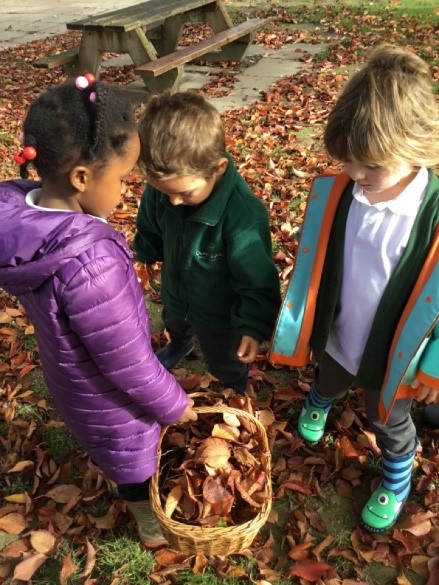
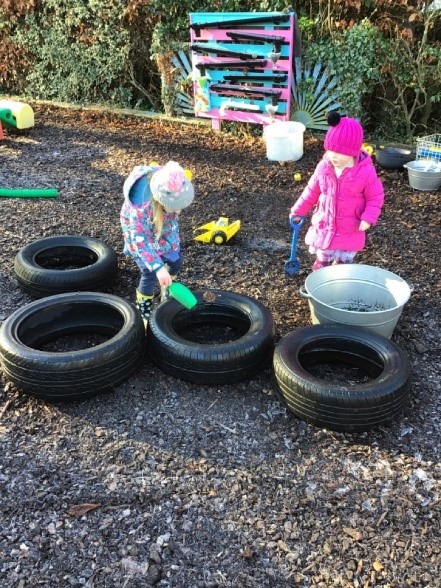
Children are supported and encouraged to form positive relationships. Children are helped to understand feelings by talking about emotions through stories and puppets etc. Collaborative activities are planned to encourage children to play as part of a group
Children are encouraged to become increasingly independent, through a carefully thought out classroom environments. They become more confident by being given opportunities to carry out small tasks and being praised. Children are encouraged to ask adults for help. We provide opportunities for them to talk about their home lives and communities. Children are encouraged to manage their feelings. Many activities provide practise in sharing and turn taking. Stories are used as a basis for discussion. Clear consistent boundaries are set and routines help children to know what is expected of them.
Communication and Language
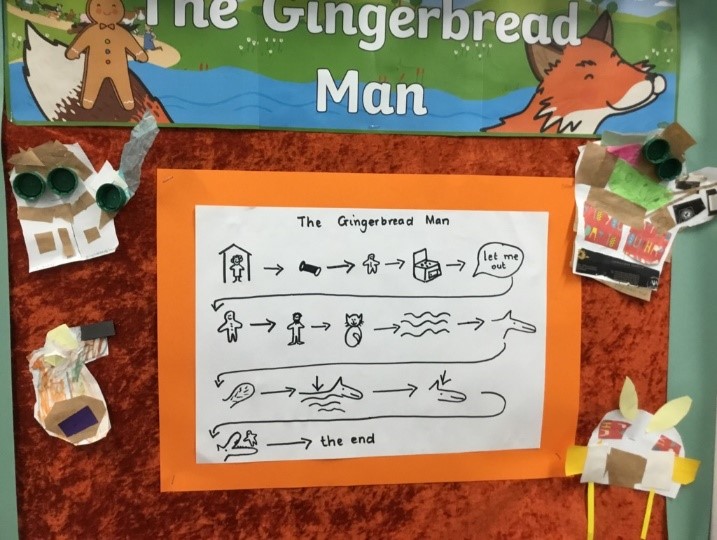
Children learn good listening skills. They regularly listen to stories and join in with rhymes and songs. Children are encouraged to concentrate and sit together. They are given opportunities to speak in a variety of contexts. They learn to talk to peers and adults both individually and in larger groups. They learn to ask questions and to give explanations and retell stories. Children are constantly learning new words and expressions which enable them to become increasingly confident at communication. Children with English as an additional language are supported through a range of resources and small group activities.
Physical Development
Children have access to both our classrooms and our gardens during each session. They learn how to move in a range of ways, climb, balance and kick and throw balls. Using a variety of resources, they learn to use a range of tools and make marks. Children are encouraged to develop fine motor control in a variety of ways. Opportunities for mark making are part of a wide range of activities both indoors and in the outdoor areas. In Reception, children are encouraged to form letters correctly so that they can develop clear writing that others can read. In Nursery, the nursery garden is used to develop gross physical activities. In Reception, children take part in PE sessions weekly.
Literacy
Children share in the enjoyment of books through daily story and rhyme sessions. Children learn how to handle books appropriately and can independently use our book areas. They begin to learn how stories are structured and talk about what might happen next. Children begin to learn that print has meaning and are able to borrow a variety of books and story sacks from Nursery. In Reception, children learn to read in guided reading groups or individually. They read daily as part of our activities in different contexts. Through a wide range of opportunities, children are encouraged to mark make in a range of ways and are encouraged to give meaning to their marks by telling us about their pictures. Adults support children at their own appropriate level. In Reception, daily phonics teaching using Letters and Sounds enables children with both reading and writing. They are encouraged to ‘have a go’ at writing for meaning during their play and take part in writing activities developing what they need to learn next. We follow Talk for Writing, using our class stories to help children learn how to develop their own stories.
Mathematics
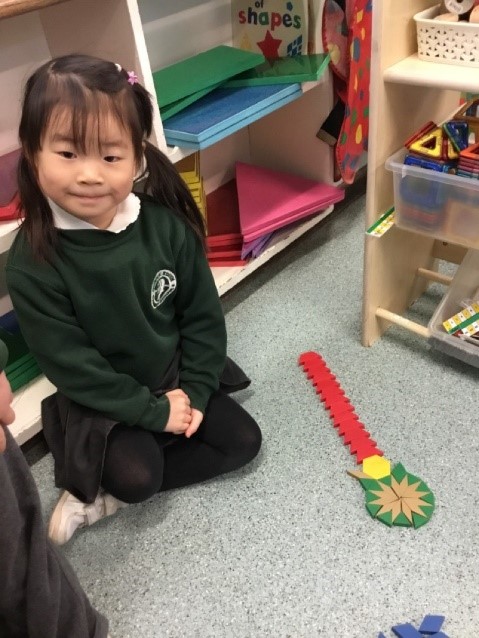
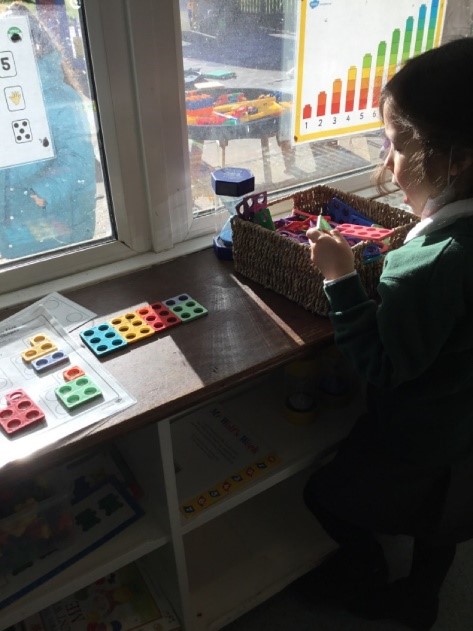
Through a wide variety of activities and resources children begin to use number names accurately in their play. They learn to recite number names in order and that numbers represent an amount. Children begin to recognise numerals and match them to the correct number of objects. Adults show how to use mathematical language by asking questions such as ‘How many more do we need?’ Children have access to maths areas where there are a variety of interesting mathematical resources. Mathematical activities can also include games stories and songs. In Reception, children have daily maths sessions based around White Rose Maths. Opportunities to work towards their own next steps and planned into the classroom environment. Children’s interest in shape, space and size is stimulated by varied resources and activities. Children are encouraged to make links in their learning through the number of the week.
Understanding the World
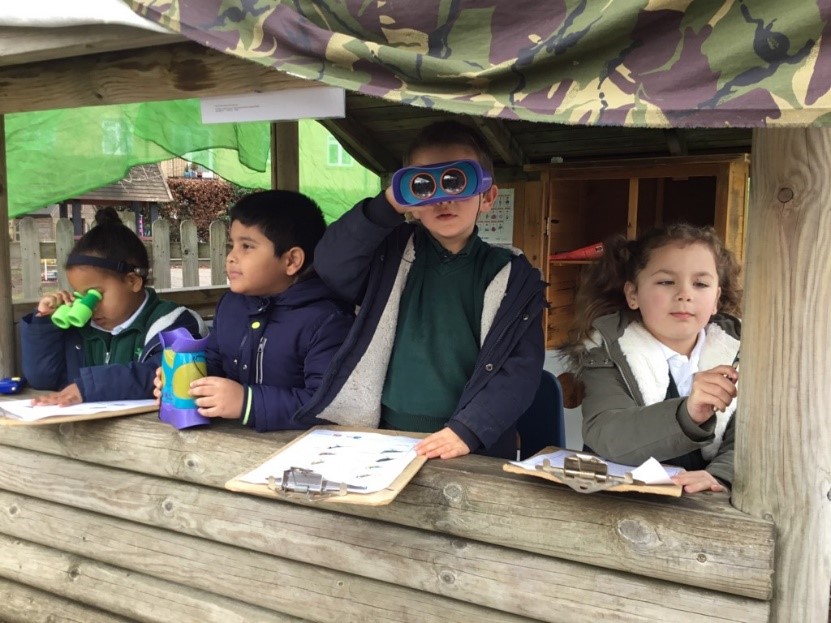
Children are encouraged to talk about significant events in their own life. Parents and carers are invited in to share special celebrations with us. We learn about different occupations and ways of life and celebrate our similarities and differences. They are given opportunities to think about the past and explore the world around them. Children are encouraged to explore our natural world. They learn to talk about what they have seen. From digging in the garden for worms, planting bulbs and vegetables or taking part in the Big Schools Birdwatch.
Expressive Arts and Design
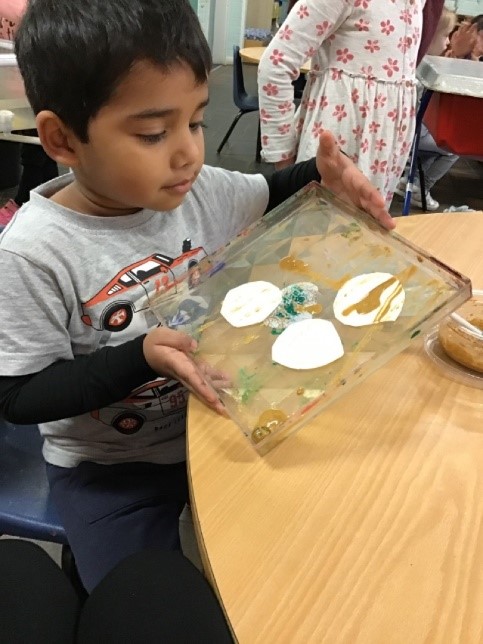
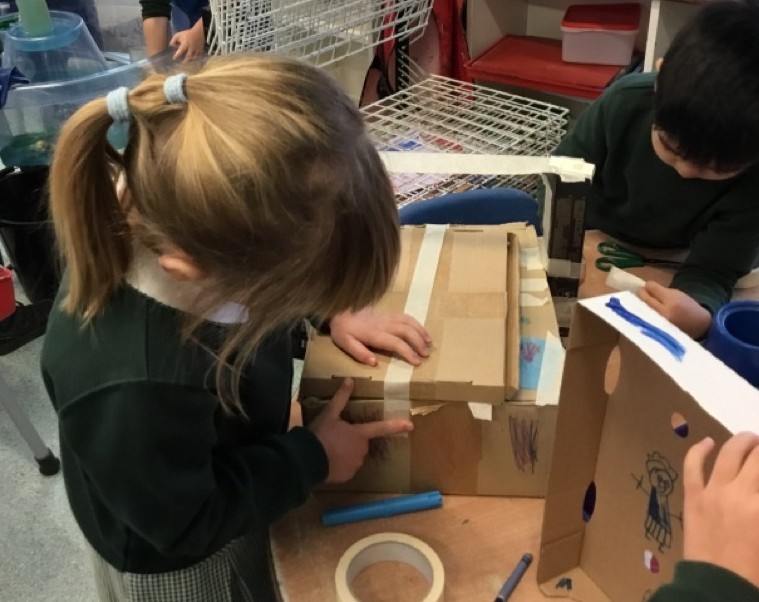
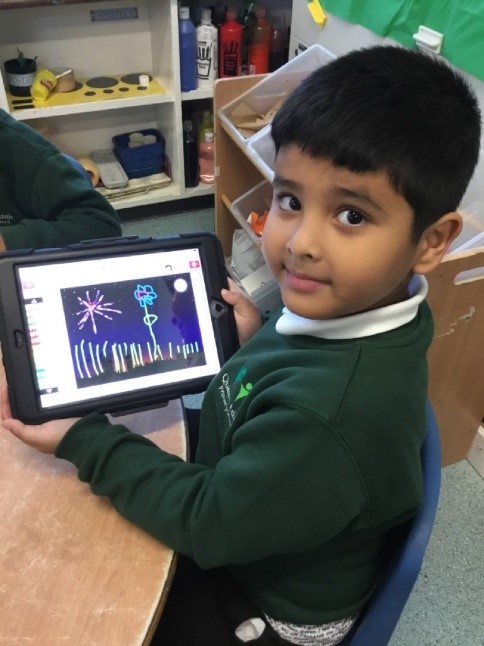
Children use a variety of materials to explore colour and texture. They have opportunity to construct and build using a range of tools both independently and with adult support. They enjoy exploring a range of music and instruments and learn about sounds and rhythms.
Children sing familiar songs and learn new songs, rhymes and poems. Nursery children regularly take part in dancing and ring games in the garden. All children learn about a variety of experiences through role play. They enjoy using their imaginations, imitating adults and dressing up in a range of roles.
For more information please look at the Early Years Policy.
How you can help at home:
Research shows that children learn most effectively when parents support them at home.
You can help your child by:
- Sharing books together
- Talking about shapes and counting together
- Playing games together
- TALKING and enjoying activities together
Useful websites include:
